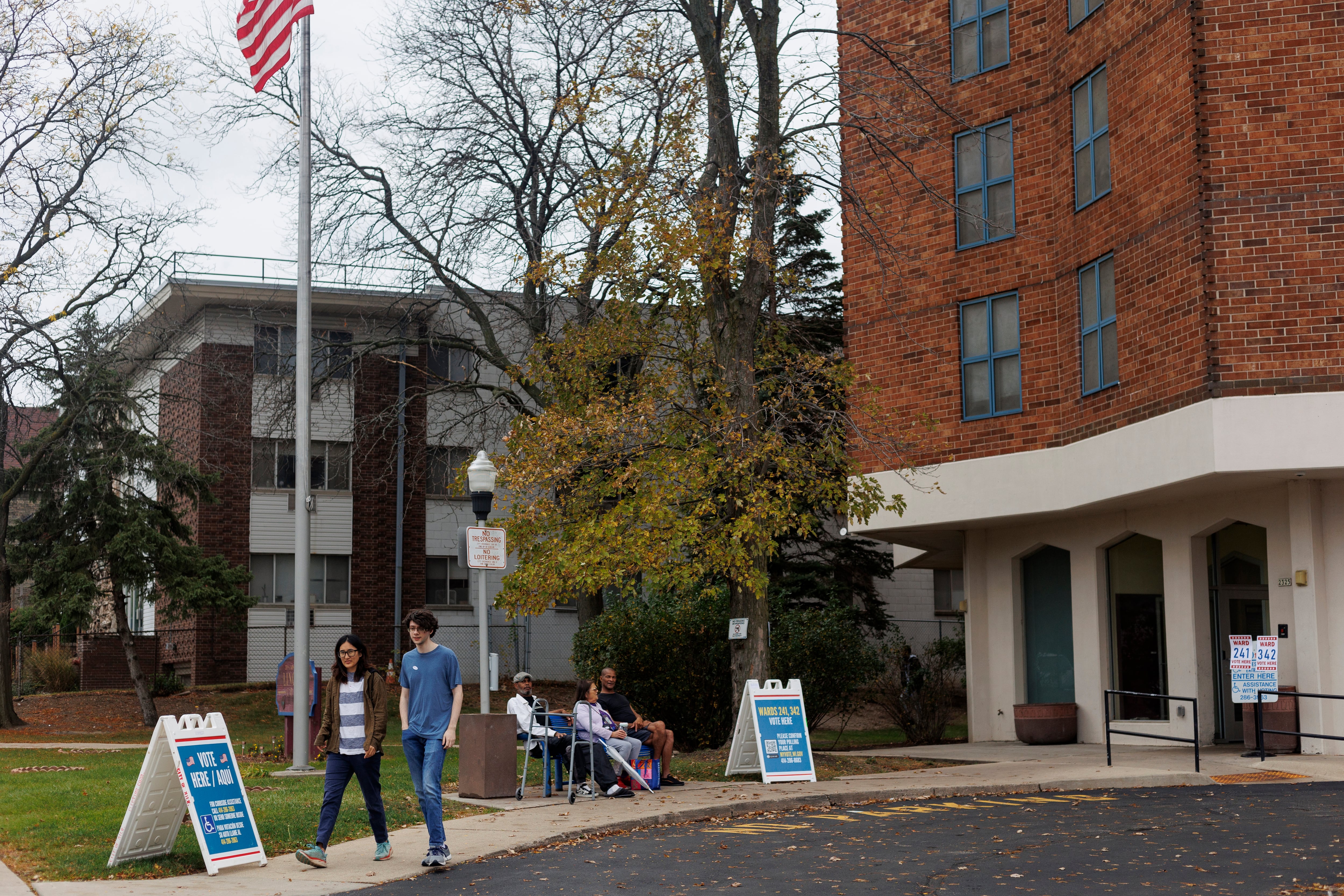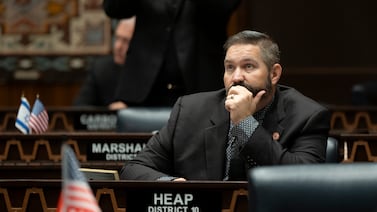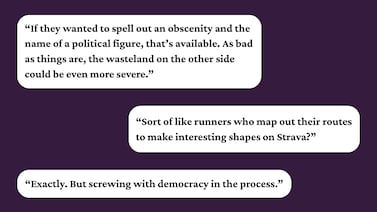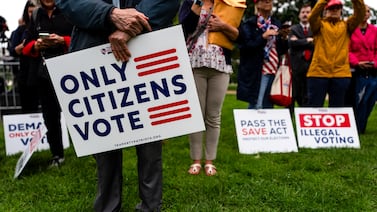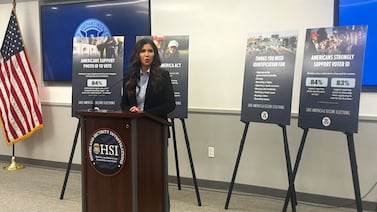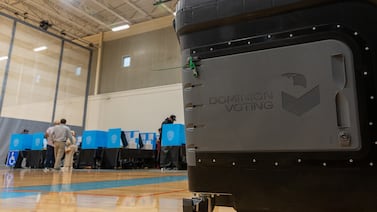Votebeat is a nonprofit news organization reporting on voting access and election administration across the U.S. Sign up for Votebeat Wisconsin’s free newsletter here.
Wisconsin voters overwhelmingly approved a constitutional amendment to ban voting by noncitizens across the state. The amendment is likely to have little practical effect on who can vote under existing laws, but it bars municipalities from opening their local elections to noncitizens or younger voters.
The GOP-written amendment approved Tuesday will change constitutional language that says “every” U.S. citizen 18 or older has a right to vote to instead say that “only” a U.S. citizen 18 or older can vote in national, state, and local elections.
The amendment passed by a roughly 70% to 30% margin. Just one of Wisconsin’s 72 counties, Democratic-heavy Dane County, had more no votes on the amendment than yes votes.
Republicans have spent years emphasizing the potential for noncitizens to vote in Wisconsin’s state and federal elections — even though it is already illegal and rare — and criticizing the handful of municipalities around the country that allow some noncitizens to vote in local elections.
Similar amendments came before voters in seven other states on Nov. 5, and all of them passed.
No Wisconsin municipalities allow noncitizens to vote in local elections. Proponents of the amendment wanted to make sure that would never change.
Some opponents of the measure were in favor of letting municipalities have the final say on whether noncitizens could vote in local races. Others feared the amendment could directly lead to a requirement that voters present proof of citizenship.
Christine Neumann-Ortiz, the executive director of the immigrant rights group Voces de la Frontera Action, told Votebeat the measure was an example of Republicans focusing on “mythological problems that were created … to make voting harder.”
“The biggest reason it [passed] is that there wasn’t a significant investment in educating voters statewide,” Neumann-Ortiz said.
Republican state Sen. Julian Bradley, the author of the amendment, didn’t respond to a request for comment. He previously dismissed the idea that this amendment had anything to do with a citizenship proof requirement, though he said he may support such a measure in the future.
The amendment is part of a conservative legal and legislative push in Wisconsin to designate noncitizens on their state-issued IDs, require the Department of Transportation to share its outdated citizenship data with the Wisconsin Elections Commission, and, perhaps in the future, require voters to present citizenship proof.
Of those GOP efforts, the constitutional amendment — which, unlike normal bills, can’t be vetoed by the governor — is the only one to succeed so far. A pending lawsuit will determine whether conservatives can access the transportation department’s citizenship data.
Alexander Shur is a reporter for Votebeat based in Wisconsin. Contact Alexander at ashur@votebeat.org.

